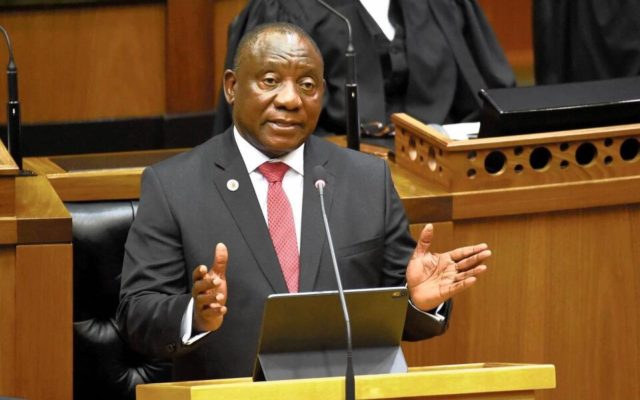Ramaphosa arrived on a train full of promises, with the pledge of a new dawn and servant leadership. “Thuma mina (Send me),”
THERE ARE over a million reasons why South Africans must pause to celebrate the day on which Nelson Mandela, the founding father of our democracy, walked out of prison a free man after 27 years behind bars.
So, we should pause, reflect and even celebrate on February 11, 1990, as the day on which South Africa took baby steps towards the end of apartheid and the birth of a democracy.
However, as we celebrate we should accept that while the principles that he stood for will forever live in our hearts and guide our lives, that our country in 2020 needs much, much more than a Mandela.
There are many good reasons why Mandela, the excellent and visionary leader he was, was good for his time. Madiba was fit for the political purpose bestowed on him by history.
He was the glue that held South Africa, a country that emerged out of decades of apartheid, a system that dehumanised and disenfranchised the majority. It was a system so evil that the UN declared it a crime against humanity.
The presidency of Mandela’s successor, Thabo Mbeki, demanded a different and perhaps radical approach. Without dumping the policies and principles that had been developed during Mandela’s one-term presidency, the Mbeki presidency was about the implementation.
It was about bringing to life the many laws and policies that the ANC had introduced. During the decade that Mbeki presided, his main focus was on getting government institutions to deliver on election promises of the ANC. In the second term of his presidency, Mbeki’s clarion call was “Business Unusual”, deliberately adopted to force political and administrative leaders to do things differently to achieve better results.
Mbeki was removed before the end of his second term after he was defeated at the watershed ANC conference in Polokwane. He was replaced by Jacob Zuma, whose nine years in power is a subject of court cases and a commission of inquiry into state capture.
When Zuma’s reign was cut short and he was replaced by Cyril Ramaphosa, there were huge expectations that the incumbent would move in like a new broom and introduce bold and sweeping changes.
Ramaphosa arrived on a train full of promises, with the pledge of a new dawn and servant leadership. “Thuma mina (Send me),” he said.
South Africa rode the crest of the Thuma Mina or Ramaphoria wave. Their expectations of quick and bold changes were high. What has happened instead is that the Ramaphoria has died down.
There is no doubt that Ramaphosa will use his 2020 State of the Nation address to reflect on the meaning of Mandela. And that is where he must stop.
South Africa in 2020 doesn’t need a Mandela-type leader. Ramaphosa must stop trying to be Mandela. The country he leads is in bad shape. Unemployment is at its highest, the economy has hit rock bottom, municipalities are unable to deliver services, and state-owned enterprises are collapsing.
What South Africa needs now is a president who will deliver on these and other priorities, without failure or excuse.
Jovial Rantao is a former editor, media trainer, political analyst and former Group Ombudsman: Independent Newspapers








